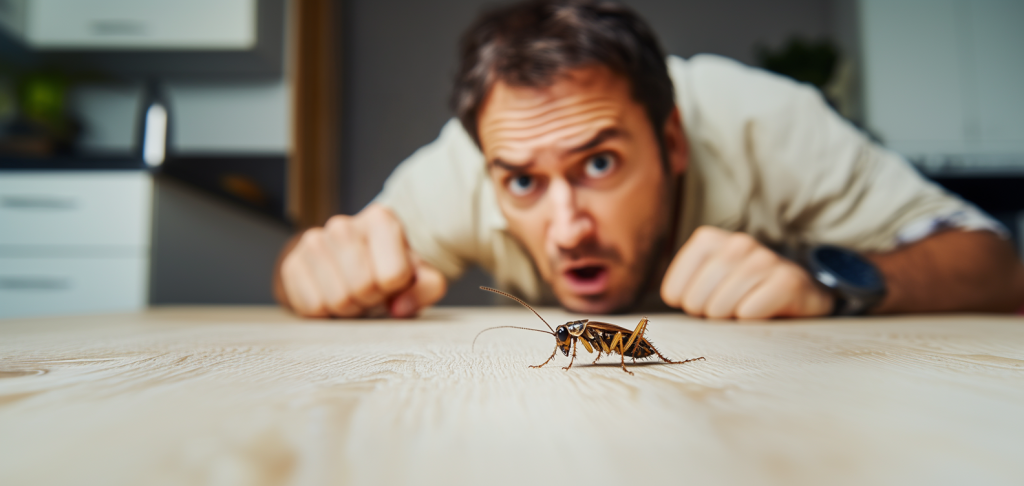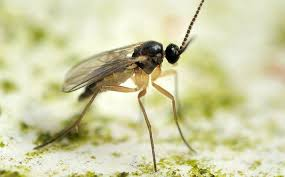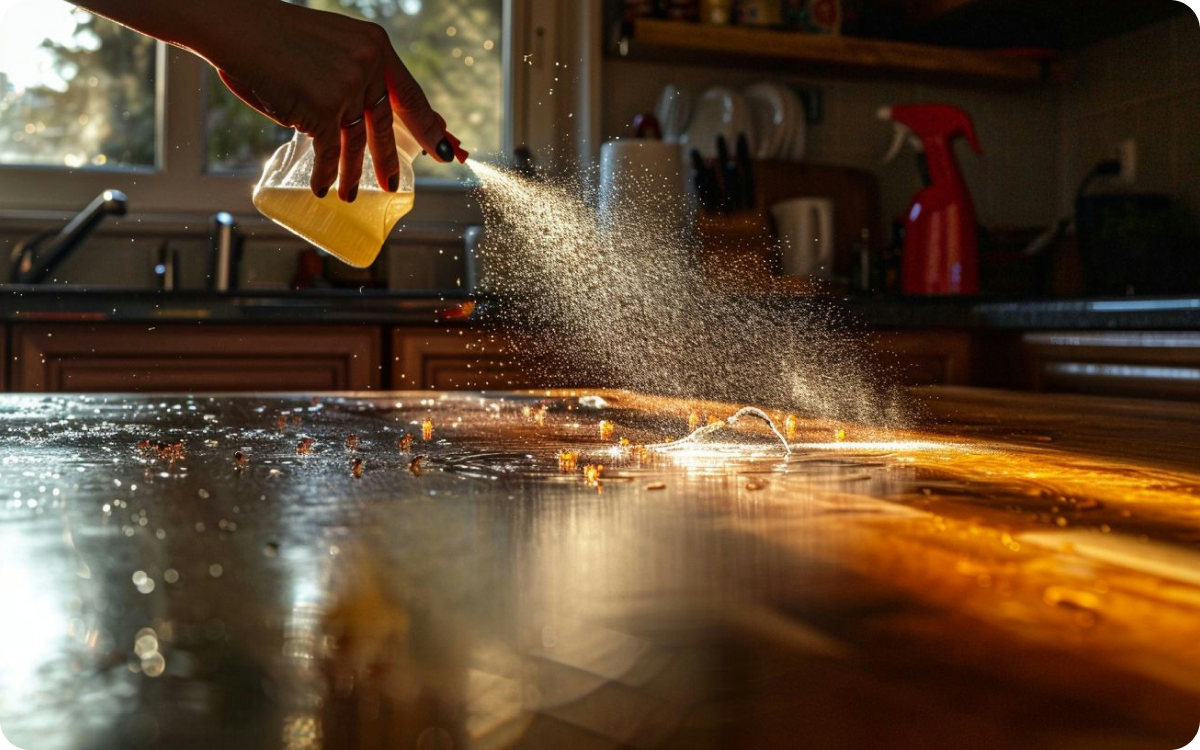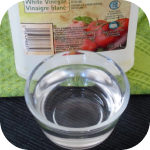Simple Bullet Points
-
Keep your home clean by wiping surfaces and storing food in sealed containers.
-
Repair any leaks and avoid leaving standing water.
-
Seal entry points such as cracks around doors and windows.
Simple Bullet Points + Description
-
Eliminate Moisture Sources: Gnats thrive in moist environments. Check for and repair any leaks in your home, whether they’re from pipes, faucets, or appliances. Ensure your home is well-ventilated to prevent dampness.
-
Clean Drains Regularly: Gnats often breed in drain pipes where organic matter accumulates. Use a mixture of baking soda and vinegar to clean your drains. Pour half a cup of baking soda, followed by half a cup of vinegar, down the drain. Let it sit for about 30 minutes, then flush with hot water to remove debris and reduce gnat breeding sites.
-
Use Vinegar Traps: Apple cider vinegar is a powerful attractant for gnats. To create a trap, pour apple cider vinegar into a bowl, add a few drops of dish soap, and leave it uncovered. The vinegar will attract the gnats, and the dish soap will break the surface tension, causing the gnats to sink and drown.
Bullet Points in Container
-
 Eliminate Moisture Sources: Gnats thrive in moist environments. Check for and repair any leaks in your home, whether they’re from pipes, faucets, or appliances. Ensure your home is well-ventilated to prevent dampness.
Eliminate Moisture Sources: Gnats thrive in moist environments. Check for and repair any leaks in your home, whether they’re from pipes, faucets, or appliances. Ensure your home is well-ventilated to prevent dampness. -
 Clean Drains Regularly: Gnats often breed in drain pipes where organic matter accumulates. Use a mixture of baking soda and vinegar to clean your drains. Pour half a cup of baking soda, followed by half a cup of vinegar, down the drain. Let it sit for about 30 minutes, then flush with hot water to remove debris and reduce gnat breeding sites.
Clean Drains Regularly: Gnats often breed in drain pipes where organic matter accumulates. Use a mixture of baking soda and vinegar to clean your drains. Pour half a cup of baking soda, followed by half a cup of vinegar, down the drain. Let it sit for about 30 minutes, then flush with hot water to remove debris and reduce gnat breeding sites. -
 Use Vinegar Traps: Apple cider vinegar is a powerful attractant for gnats. To create a trap, pour apple cider vinegar into a bowl, add a few drops of dish soap, and leave it uncovered. The vinegar will attract the gnats, and the dish soap will break the surface tension, causing the gnats to sink and drown.
Use Vinegar Traps: Apple cider vinegar is a powerful attractant for gnats. To create a trap, pour apple cider vinegar into a bowl, add a few drops of dish soap, and leave it uncovered. The vinegar will attract the gnats, and the dish soap will break the surface tension, causing the gnats to sink and drown.
Bullet Points in Container
- A bacterial infection that can cause severe gastrointestinal issues like vomiting, diarrhoea, and stomach cramps.
- An infection that leads to severe diarrhoea, sometimes with blood, caused by consuming contaminated food or water.
- A bacterial disease that can cause extreme dehydration due to severe diarrhoea.
EXPERT INSIGHTS
According to Entomologist Dr. Jane Smith
“Stinging pests like wasps, bees, and hornets are more than just a nuisance. They can pose serious health risks, especially if their nests are disturbed or if someone nearby has an allergy to their venom.” Dr. Smith emphasizes the importance of handling these pests carefully: “Understanding their behaviour and using appropriate control methods is crucial. In many cases, professional help is necessary to manage infestations effectively.”
Do’s & Don’ts: DIY Ant Removal Methods
DO'S
-
Always use these products sparingly, following the manufacturer’s instructions precisely to ensure safety.
-
Clean and monitor the treated areas regularly to check for progress and reapply treatments as needed. Prioritize safety by ensuring any pest control products you use are non-toxic and safe for your household, especially for children or pets.
DON'TS
-
Avoid using too many pesticides, as excessive use can harm both humans and pets.
-
Don’t be too quick when trying DIY methods for ant control, stay patient and consistent since some methods may take several days or even weeks to work.
Simple Bullet Points
- Keep your home clean by wiping surfaces and storing food in sealed containers.
- Repair any leaks and avoid leaving standing water.
- Seal entry points such as cracks around doors and windows.
| HEALTH RISK & SYMPTOMS | DESCRIPTION |
|---|---|
| Disease Transmission Diarrhea, vomiting, stomach cramps, fever | Cockroaches carry bacteria like Salmonella and E. coli, which they spread through contact with food, utensils, and surfaces. |
| Respiratory Issues Wheezing, coughing, shortness of breath, asthma attacks | Cockroach allergens, found in their droppings, saliva, and body parts, can trigger or worsen asthma and bronchitis, especially in vulnerable groups. |
| Allergic Reactions Sneezing, runny nose, itchy eyes, skin rashes, difficulty breathing | Cockroach proteins can cause allergic reactions in sensitive individuals, especially children and those with respiratory conditions. |
| Food Contamination Nausea, vomiting, diarrhea, abdominal pain | Cockroaches contaminate food supplies with harmful bacteria and pathogens, leading to foodborne illnesses. |
| Skin Infections Redness, swelling, skin irritation, infection | Contact with cockroach-contaminated surfaces may result in skin infections caused by bacteria they carry. |

Features Container
- Effectiveness: High, Targets the entire colony
- Speed of Results: Moderate, Takes days to weeks
- Ease of Use: Easy to place around mounds
- Safety: Safe if kept away from pets/kids
- Cost: Affordable

Features Container
- High, Targets the entire colony High, Targets the entire colony High, Targets the entire colony High, Targets the entire colony High, Targets the entire colony High, Targets the entire colony
- Moderate, Takes days to weeks
- Easy to place around mounds
- Safe if kept away from pets/kids
- Affordable

Features Container
- Moderate, Takes days to weeks
- Easy to place around mounds
- Safe if kept away from pets/kids
- Affordable

Fungus Gnats
From insights on integrated pest management to tips on seasonal pest proofing.
Buffalo Gnats
From insights on integrated pest management to tips on seasonal pest proofing.
Eye Gnats
From insights on integrated pest management to tips on seasonal pest proofing.1. Borax and Sugar Ant Bait
Borax is a natural substance that is effective at killing ants by interfering with their digestive system. When combined with sugar, it becomes an irresistible bait that ants carry bring to their colony, effectively eliminating the source.
INGREDIENTS
-
 1/2 Cup Granulated Sugar
1/2 Cup Granulated Sugar -
 1 1/2 Tbsp Borax
1 1/2 Tbsp Borax -
 1/2 Cup Granulated Sugar
1/2 Cup Granulated Sugar -
 1 1/2 Tbsp Borax
1 1/2 Tbsp Borax
INSTRUCTIONS
1. Mix the Solution
- In a bowl, combine the sugar and borax.
- Pour in the warm water and stir until the sugar and borax are fully dissolved.
2. Prepare the Bait Stations
- Soak cotton balls in the solution until they are saturated.
- Alternatively, you can pour a small amount onto pieces of cardboard.
3. Place the Bait
- Locate areas where you’ve seen ant activity, such as along trails or near entry points.
- Place the soaked cotton balls or cardboard pieces in these areas.
4. Monitor and Replace
- Check the bait stations daily.
- Replace the bait when it dries out or is depleted.
SAFETY TIPS
- Keep Away from Children and Pets: Borax might be harmful if ingested by pets or children. Place bait stations out of their reach.
- Use Gloves: Wear gloves when handling borax to avoid skin irritation.
Note
This method allows ants to carry the poisoned bait back to their colony...
Not getting a solution?
Get your free pest control estimate today!Why Choose Our Ant Control Services?
Our services are designed to offer the most effective and eco-friendly pest control solutions, keeping your home safe from ants and other invaders. Consider checking our comprehensive pest solutions for other pest issues, including cockroach, termite, and rodent control. Need an estimate for pest control? Our team is standing by, ready to help. Get A Risk Free Estimate.
Certified Technicians
Our team is licensed and experienced in pest control

Eco-Friendly Solutions
We make sure safety for children and pets

Guaranteed Results
We offer a satisfaction guarantee for our ant control services





